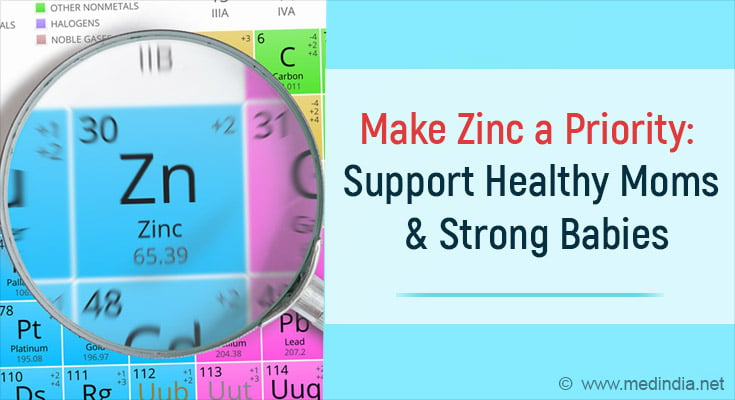- Zinc deficiency is common in pregnant Indian women, even with supplements
- This deficiency can increase pregnancy risks and hinder fetal development
- Dietary changes, proper supplementation, and education are key to addressing this issue
Maternal zinc deficiency, a condition known as maternal hypozincemia, is a significant public health concern in India. Despite efforts to address it, recent research suggests a surprisingly high prevalence of this issue among pregnant women (1✔ ✔Trusted Source
Zinc Supplementation Initiated Prior to or During Pregnancy Modestly Impacted Maternal Status and High Prevalence of Hypozincemia in Pregnancy and Lactation: The Women First Preconception Maternal Nutrition Trial
).
Advertisement
Zinc’s Importance During Pregnancy
Zinc is a vital mineral that plays a crucial role in fetal development. It is essential for cell growth, division, and immune function. During pregnancy, zinc supports the healthy development of the baby’s organs, nervous system, and skeletal system. It also contributes to a healthy pregnancy by aiding in wound healing and reducing the risk of infections.
Advertisement
Prevalence of Maternal Zinc Deficiency in India
A recent study published in The Journal of Nutrition highlighted a high rate of maternal hypozincemia among Indian women. The study found that even with daily zinc supplementation for at least seven months, a significant number of women still exhibited zinc deficiency. This suggests widespread zinc deficiency in pregnant women across India.
Advertisement
Advertisement
Factors Contributing to Zinc Deficiency
Several factors contribute to zinc deficiency in India, including:
Dietary Habits: Staple diets in India often lack sufficient sources of bioavailable zinc, which is the form readily absorbed by the body. Vegetarian diets, particularly those low in animal protein and dairy, can be especially deficient.
Poor Absorption: Certain dietary factors, such as phytates found in whole grains and legumes, can hinder zinc absorption. Intestinal infections, common in India, can further impair zinc uptake.
Increased Demand During Pregnancy: Pregnancy itself increases the body’s demand for zinc. If dietary intake is inadequate, women are more susceptible to deficiency.
Consequences of Maternal Zinc Deficiency
Maternal zinc deficiency can have serious consequences for both mother and baby. Potential risks include:
Increased Risk of Pregnancy Complications: Zinc deficiency can contribute to preeclampsia, a pregnancy disorder characterized by high blood pressure and potential organ damage. It may also increase the risk of preterm birth and low birth weight.
Poor Fetal Development: Zinc deficiency can hinder the baby’s growth and development, leading to issues with organ function and the nervous system.
Weakened Immune System: Both mother and baby are more susceptible to infections when zinc deficient.
Addressing Maternal Zinc Deficiency
Combating maternal zinc deficiency requires a multi-pronged approach:
Dietary Changes: Promoting dietary diversification that includes zinc-rich foods like red meat, poultry, seafood, dairy products, eggs, nuts, and lentils can significantly improve zinc intake.
Supplementation: Prenatal vitamins with adequate zinc content are crucial, especially for women with high-risk factors for deficiency.
Public Health Initiatives: Educational programs to raise awareness about the importance of zinc during pregnancy and strategies to improve dietary zinc intake are essential.
In summary, maternal zinc deficiency is a significant public health concern in India. By addressing dietary habits, promoting supplementation, and implementing public health initiatives, we can work towards ensuring a healthy pregnancy and optimal fetal development for all Indian mothers.
Reference:
- Zinc Supplementation Initiated Prior to or During Pregnancy Modestly Impacted Maternal Status and High Prevalence of Hypozincemia in Pregnancy and Lactation: The Women First Preconception Maternal Nutrition Trial – (https://pubmed.ncbi.nlm.nih.gov/38621624/)
Source-Medindia



